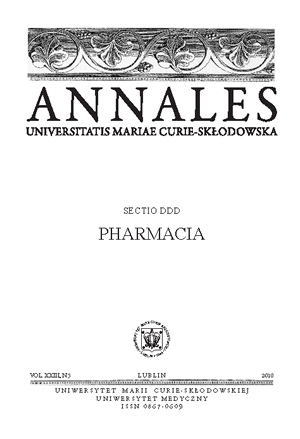Acute complications of diabetes – the present state of knowledge. Part I. Diabetic ketoacidosis
Keywords:
diabetic ketoacidosis, type 1 diabetes, type 2 diabetes, epidemiology, pathogenesis, clinical picture, standards of treatmentAbstract
Diabetic ketoacidosis (DKA) is the most common acute hyperglycemic complication, which poses problems mostly in type 1 diabetes, sporadically in type 2. The most frequent cause of developing ketoacidosis in patients with type 1 diabetes is withdrawal of or missing an insulin dose or delayed diagnosis; in patients with type 2 diabetes it is severe infection or stress with accompanying relative insulin deficiency. The basis for diagnosis is hyperglycemia, ketonemia and/or ketonuria and features of metabolic acidosis. Mortality in the pathology reaches 5%. The study presents the current state of knowledge about DKA concerning epidemiology, pathogenesis, clinical picture and particularly current standards of treatment.
References
1. Chiasson JL, Aris-Jilwan N, Belanger R, et. Diagnosis and treatment of diabetic ketoacidosis and the hyperglycemic hyperosmolar state. CMAJ 2003;168(7),859-866.
2. Efstathiou SP, Tsiakou AG, Tsioulos DI, et. A mortality prediction model in diabetic ketoacidosis. Clin. Endocrinol. 2002; 57(5),595-601.
3. Fourtner SH, Weinzimer SA, Murphy KL, et. Hyperglicemic hyperosmolar nonketotic (HHNK) syndrome in children. Proc. Endocr Soc. 85th Annual Meeting; Philadelphia June 22,2003, abstract OR 42-46..
4. Karnafel W, Krzymineń J. Ostre powikłania hiperglikemiczne. W Cukrzyca. Kompendium.
J. Sieradzki (red.).Wyd. Via Medica 2009,308-319.
5. Krentz A.J, Holt H.B.Diabetic Ketoacidosis in Adults. W Emergencies in Diabetes. Diagnosis,
Management and Prevention. Ed. John Wiley & Sons,Ltd,2004,1-32.6.
6. Lalau J.D.: Lactic Acidosis in Diabetes. W Emergencies in Diabetes. Diagnosis, Management and Prevention. Ed John Wiley & Sons,Ltd.2004,113-132.
7. Lober D. Nonketotic hypertonicity in diabetes mellitus. Med.Clin.North.An.,1995;79,39-52.
8. Savage MW, Kilvert A. ABCD guidelines for the management of hyperglycaemic emergencies in adults. Position Statement.Pract.Diab.Int.2006,23(5),227-231.
9. Sola E, Garzon S, Garcia-Torres S et al. Management of diabetic ketoacidosis in a teaching
Hospital. Acta Diabetol. 2006,43,127-130.
10. White NH. Management of Diabetic Ketoacidosis. Reviews in Endocrine & Metabolic Disorders, 2003;4,343-353
11. Woerle HJ, Gerich JE. Hyperosmolar Non-ketotic Hyperglycaemia. W Emergencies in Diabetes. Diagnosis, Management and Prevention. Ed John Wiley & Sons,Ltd.2004, 55-72.
12. Venkatraman R, Singhi S.C Hyperglycemic Hyperosmolar Nonketototic Syndrom. Indian J. Ped. 2006,73,55-60.
13.Wierusz-Wysocka B, Zozulińska-Ziółkiewicz D. Postępowanie w stanach nagłych i szczególnych u chorych na cukrzycę. Wyd. Via Medica 2009, 8-22.
14. Zalecenia kliniczne dotyczące postępowania u chorych na cukrzycę 2010. Stanowisko Polskiego Towarzystwa Diabetologicznego.Diabet.Prakt.,2010,11,supl.A,18-21.
Downloads
Published
Issue
Section
License
Copyright (c) 2010 Authors

This work is licensed under a Creative Commons Attribution-NonCommercial-NoDerivatives 3.0 Unported License.


